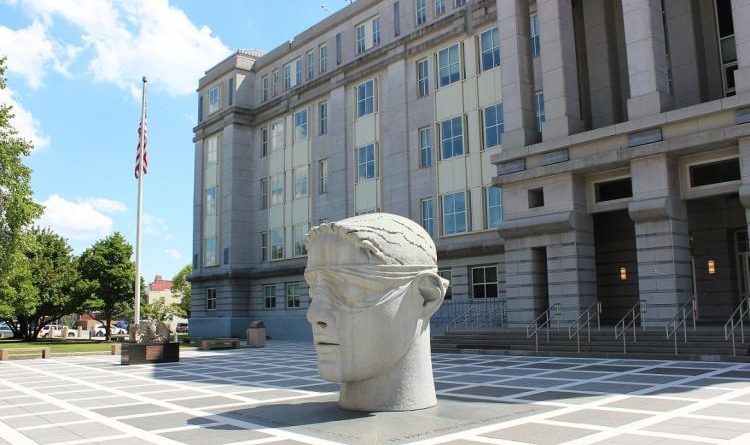Justice Department Settles Claims Against Toms River over Zoning Code that Restricts Houses of Worship
NEWARK, N.J. – The Justice Department today announced an agreement with the Township of Toms River, New Jersey, to resolve allegations the township violated the Religious Land Use and Institutionalized Persons Act (RLUIPA), by severely restricting where houses of worship can locate within its jurisdiction.
The proposed consent decree, which was filed today in the U.S. District Court of the District of New Jersey and must still be approved by the court, would resolve a lawsuit the United States also filed today alleging the township’s zoning code places unreasonable limits on where religious assemblies and institutions may locate, substantially burdens religious exercise, and treats religious assemblies and institutions on less than equal terms with nonreligious assemblies and institution.
“Federal law protects religious communities against unequal treatment and unwarranted burdens,” Rachael A. Honig, Acting U.S. Attorney for District of New Jersey, said. “Zoning regulations that impose unreasonable restrictions or prevent religious faiths from having a place to worship violate RLUIPA. Through the resolution entered today, this office takes another step to put an end to unlawful zoning practices and vindicate the civil rights of minority religious communities in the District of New Jersey.”
“RLUIPA protects people of all faiths in their right to exercise their religion,” said Principal Deputy Assistant Attorney General Pamela S. Karlan of the Civil Rights Division. “The Department of Justice has long enforced RLUIPA against zoning regulations that unreasonably burden religious exercise by imposing unwarranted restrictions and conditions on the location of houses of worship.”
The complaint alleges since 2009, Toms River enacted a series of revisions to its zoning code – including a 10-acre parcel minimum requirement – which greatly reduced both the number of zoning districts in which houses of worship can locate and the number of sites available for houses of worship.
These restrictions had a particular impact on the township’s Orthodox Jewish population, who, because of their faith and religious traditions, tend to worship at small houses of worship, which they walk to and from on the Sabbath and Holidays. The complaint also alleged the township’s zoning ordinance treats houses of worship and other religious assemblies and institutions on less favorable terms than nonreligious assemblies and institutions.
As part of the consent decree, the township will revise its zoning code to: reduce the minimum acreage required for a house of worship in many zoning districts from 10 acres to two acres; allow houses of worship as-of-right in certain zoning districts; allow smaller houses of worship to be located on minor collector roads; and treat houses of worship on comparable terms to nonreligious places of assembly.
The consent decree also requires the township to train its officials and employees on RLUIPA’s requirements, establish a procedure for receiving and resolving RLUIPA complaints, and other injunctive relief.
RLUIPA is a federal law protecting religious institutions from unduly burdensome or discriminatory land use regulations. In June 2018, the Justice Department announced its Place to Worship Initiative, which focuses on RLUIPA’s provisions that protect the rights of houses of worship and other religious institutions to worship on their land. More information is available at www.justice.gov/crt/placetoworship.
In July 2018, the Department of Justice announced the formation of the Religious Liberty Task Force. The Task Force brings together department components to coordinate their work on religious liberty litigation and policy, and to implement the Attorney General’s 2017 Religious Liberty Guidance.
Individuals who believe they was subjected to discrimination in land use or zoning decisions may contact the Civil Rights Division Housing and Civil Enforcement Section at (800) 896-7743, or the U.S. Attorney’s Office Civil Rights Hotline at (855) 281-3339, or may submit a complaint through the complaint portal on the Place to Worship Initiative website. More information about RLUIPA, including questions and answers about the law and other documents, may be found at http://www.justice.gov/crt/about/hce/rluipaexplain.php.
The United States is represented by Assistant U.S. Attorney Michael E. Campion, Chief of the U.S. Attorney’s Office’s Civil Rights Unit, Civil Division, Assistant U.S. Attorney Susan Millenky, of the Civil Rights Unit, Civil Division, and Trial Attorneys Ryan G. Lee and Noah D. Sacks, U.S. Department of Justice, Civil Rights Division, Housing and Civil Enforcement Section.

Well, do the best you can. God knows there are about 14 million wicked folk just in America. Yes, God has His judgement day AFTER y3k, year 3000. 3000-2021=979 years to go. So do well: for MessiahJESUS also said do not let the left hand know what the right hand does. Blessings. Amen אמנ. USAGOP. PENTAGON.